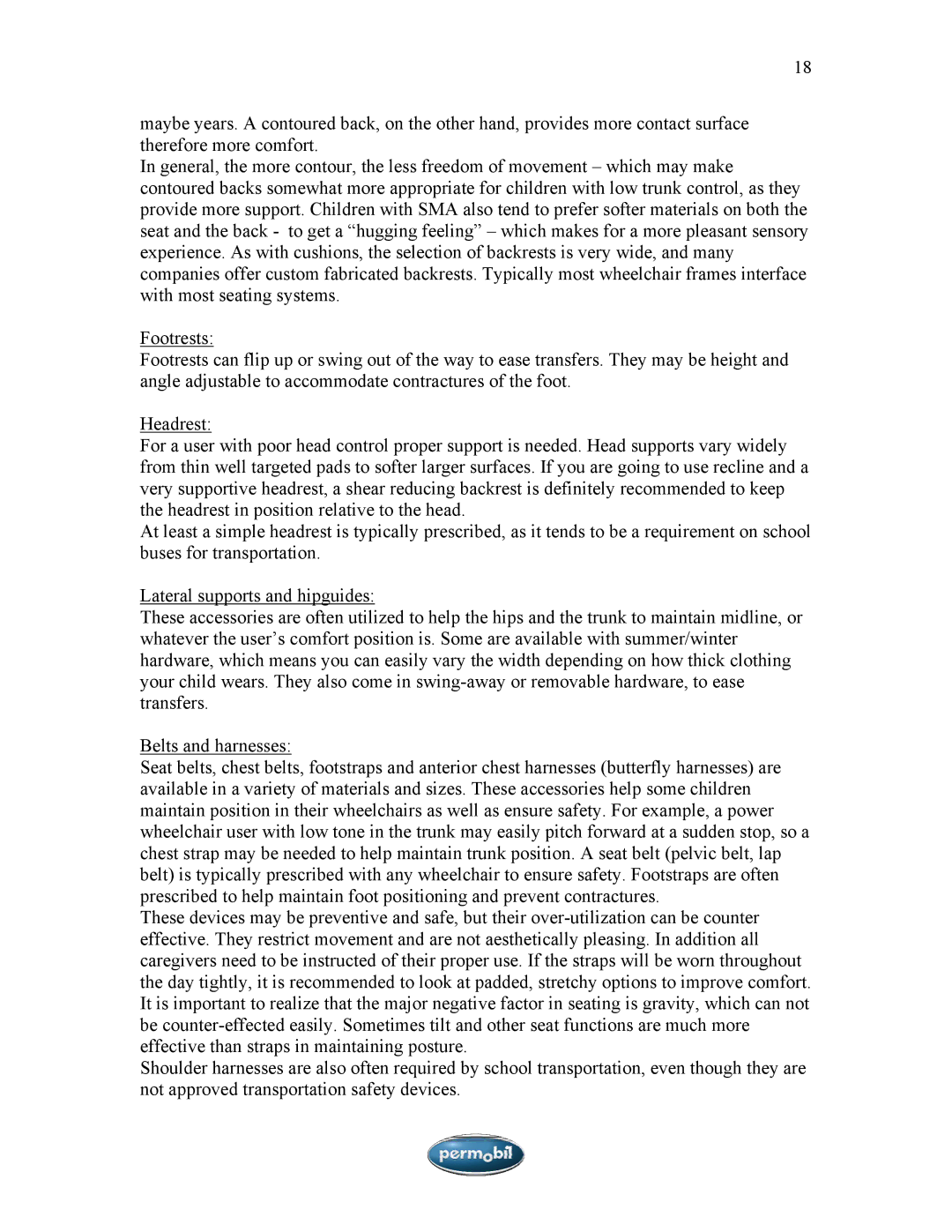SMA specifications
Sunrise Medical SMA, known for its commitment to innovation and quality in mobility solutions, offers a range of products designed to enhance the lives of individuals with varying mobility needs. The company has established itself as a leader in the industry by focusing on advanced technologies and user-centered design.One of the standout features of Sunrise Medical's SMA lineup is its modular design, allowing for customization to suit individual preferences and requirements. The modular approach not only ensures easy adjustments but also allows users to modify their mobility devices as their needs change over time. This adaptability is particularly beneficial for individuals with progressive conditions.
Another key characteristic of Sunrise Medical SMA products is their impressive range of motion and maneuverability. Many models come equipped with advanced suspension systems that provide a smooth ride, whether navigating indoor environments or tackling outdoor terrains. This feature enhances the overall user experience, ensuring comfort and stability in various settings.
Additionally, the integration of smart technologies is a hallmark of Sunrise Medical's offerings. Many devices are equipped with intelligent control systems, enabling users to operate their mobility aids with ease. These systems often feature programmable settings that can be tailored to individual preferences, enhancing overall accessibility and ease of use.
Safety is a top priority for Sunrise Medical. Their products often include advanced braking systems, anti-tip features, and ergonomic seating solutions designed to ensure the stability and security of the user. These safety measures give caregivers and users alike peace of mind while promoting independence.
In terms of design, Sunrise Medical focuses on aesthetics as well as function. Their mobility devices are available in a variety of colors and finishes, ensuring that users can express their individuality while utilizing tools that enhance their mobility.
Lastly, Sunrise Medical provides extensive support and resources for users, including training programs and user guides, to ensure that they can fully utilize the features of their mobility devices. This commitment to customer service further solidifies their reputation as a trusted name in mobility solutions.
In summary, Sunrise Medical SMA stands out for its modular design, advanced suspension systems, smart technologies, safety features, aesthetic options, and customer support. These characteristics make its products not only functional but also tailored to meet the diverse needs of users, ultimately improving their quality of life.
